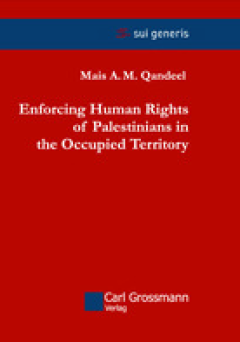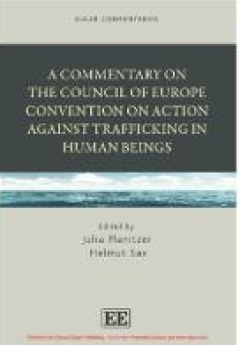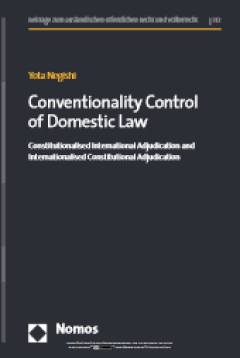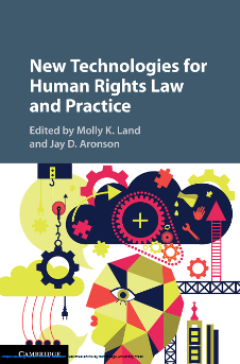Ditapis dengan

Enforcing Human Rights of Palestinians in the Occupied Territory
"The situation in Palestine has influenced the deployment of international human rights law and international humanitarian law. The impact of longterm Israeli occupation and the rule of the Palestinian Authority in the Occupied Territory is multifaceted. Despite the various research on Palestine, human rights, and the rule of law, few studies have been conducted on the enforcement mechanisms of…
- Edisi
- -
- ISBN/ISSN
- 978-3-941159-31-0
- Deskripsi Fisik
- 449 hlm.
- Judul Seri
- -
- No. Panggil
- -

A Commentary on the Council of Europe Convention on Action against Traffickin…
This comprehensive Commentary provides the first fully up-to-date analysis and interpretation of the Council of Europe Convention on Action against Trafficking in Human Beings. It offers a concise yet thorough article-by-article guide to the Convention’s anti-trafficking standards and corresponding human rights obligations. This Commentary includes an analysis of each article’s drafting his…
- Edisi
- -
- ISBN/ISSN
- 978-1-78811-156-0
- Deskripsi Fisik
- 553 hlm.
- Judul Seri
- -
- No. Panggil
- -

Environmental Protection and Transitions from Conflict to Peace: Clarifying N…
This book is the first targeted work in the legal literature that investigates environmental challenges in the aftermath of conflict. The volume brings together academics, policy-makers, and practitioners from different disciplines to clarify policies and practices of environmental protection and key legal considerations related to normative frameworks (e.g. international environmental law, int…
- Edisi
- -
- ISBN/ISSN
- 978-0-19-878463-0
- Deskripsi Fisik
- 513 hlm.
- Judul Seri
- -
- No. Panggil
- -

Protecting the Rights of People with Autism in the Fields of Education and Em…
The Council of Europe and the European Union (EU) have not developed ad hoc legal rules or hard law instruments specifically aimed at protecting the rights of people with autism. At European regional level, the special situation and needs of individuals with autism find recognition and protection within the wider legal framework concerning the rights of persons with disabilities as well as with…
- Edisi
- -
- ISBN/ISSN
- 978-3-319-13791-9
- Deskripsi Fisik
- 202 hlm.
- Judul Seri
- -
- No. Panggil
- -

Conventionality Control of Domestic Law: Constitutionalised International Adj…
Through gaining lessons from the doctrine of constitutionality control, the book deals principally with conventionality control achieved by judicial adjudicators. This monograph fills the gap in comparative international human rights law by analysing the practice of conventionality control in Europe and Latin America. Based on the empirical data, the author normatively envisions a ‘trapezium�…
- Edisi
- -
- ISBN/ISSN
- 978-3-7489-2983-3
- Deskripsi Fisik
- 252 hlm.
- Judul Seri
- -
- No. Panggil
- -

New Technologies for Human Rights Law and Practice
New technological innovations offer significant opportunities to promote and protect human rights. At the same time, they also pose undeniable risks. In some areas, they may even be changing what we mean by human rights. The fact that new technologies are often privately controlled raises further questions about accountability and transparency and the role of human rights in regulating these ac…
- Edisi
- -
- ISBN/ISSN
- 978-1-316-83895-2
- Deskripsi Fisik
- 334 hlm.
- Judul Seri
- -
- No. Panggil
- -
 Karya Umum
Karya Umum  Filsafat
Filsafat  Agama
Agama  Ilmu-ilmu Sosial
Ilmu-ilmu Sosial  Bahasa
Bahasa  Ilmu-ilmu Murni
Ilmu-ilmu Murni  Ilmu-ilmu Terapan
Ilmu-ilmu Terapan  Kesenian, Hiburan, dan Olahraga
Kesenian, Hiburan, dan Olahraga  Kesusastraan
Kesusastraan  Geografi dan Sejarah
Geografi dan Sejarah